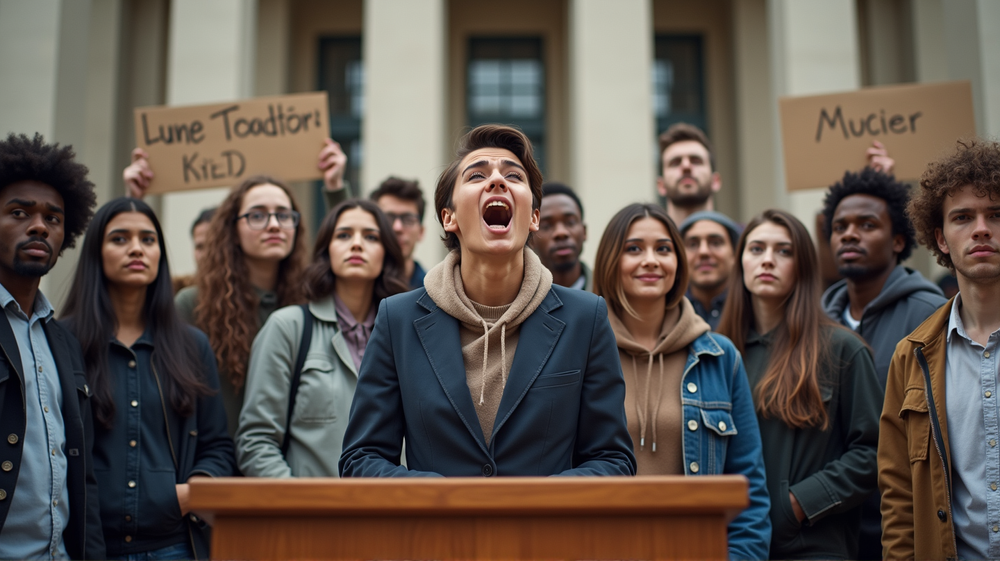In a landmark ruling that has sent reverberations through the corridors of academia and the halls of justice, an immigration judge has sanctioned the deportation of Columbia University graduate student Mahmoud Khalil. The decision, lauded by some and lambasted by others, underscores a broader crackdown on foreign students and raises profound questions about free speech and due process in the United States.
The Verdict and Its Implications
The Louisiana-based judge Jamee Comans upheld the Trump administration’s charge that Khalil’s beliefs posed a national security threat, thus validating his deportation. “The court will sustain charge of removability,” Judge Comans stated, allowing Khalil a short window until April 23 to seek relief and temporarily remain in the United States.
Mahmoud Khalil: The Student Behind the Conflict
Khalil’s ordeal began after his arrest on March 8th, which triggered widespread national protests. A student actively engaged in protests against the Gaza conflict, Khalil finds himself embroiled in legal battles on multiple fronts. Accusations against him include alleged affiliations and undisclosed past employment, further muddying the waters of his deportation case.
A Defense Against Disbelief
Khalil’s defense team has condemned the ruling as a subversion of justice. As cited by his attorney, Marc van der Hout, “we saw our worst fears play out,” a sentiment echoed by many who see the ruling as a crackdown on dissent. Ramzi Kassem, another defense attorney, underscored the chilling precedent of penalizing free speech, cautioning that such measures “should just not be possible” in a country valuing liberty.
Broader Repercussions and a Nation on Edge
The ruling has placed a spotlight on the Trump administration’s strategies and the scope of its immigration policies. DHS Secretary Kristi Noem’s comments, declaring Khalil’s removal as “welcome news,” stand in stark contrast to the mounting concern from academia and civil rights advocates, who fear a dangerous precedent has been set.
A Student Movement in Turmoil
This decision not only challenges Khalil but also sends shockwaves across university campuses nationwide. Students and supporters rally against what they perceive as an infringement on academic freedom and a blow to voices challenging authority, especially in light of Columbia’s history as a beacon for activism.
The Road Ahead for Khalil and His Supporters
As Khalil’s legal team seeks a preliminary injunction to forestall his deportation, the case has become emblematic of the tension between national security priorities and civil liberties. The arrest and possible deportation have galvanized protests, drawing comparisons to broader administrative actions against international students protesting in the current political climate.
Khalil’s saga remains a flashpoint in the debate over free expression and immigration. With federal courts yet to rule decisively on all aspects, the impact of this decision will likely resonate long into the future. According to NBC News, the case continues to highlight the delicate balance between upholding national security and preserving fundamental human rights.













